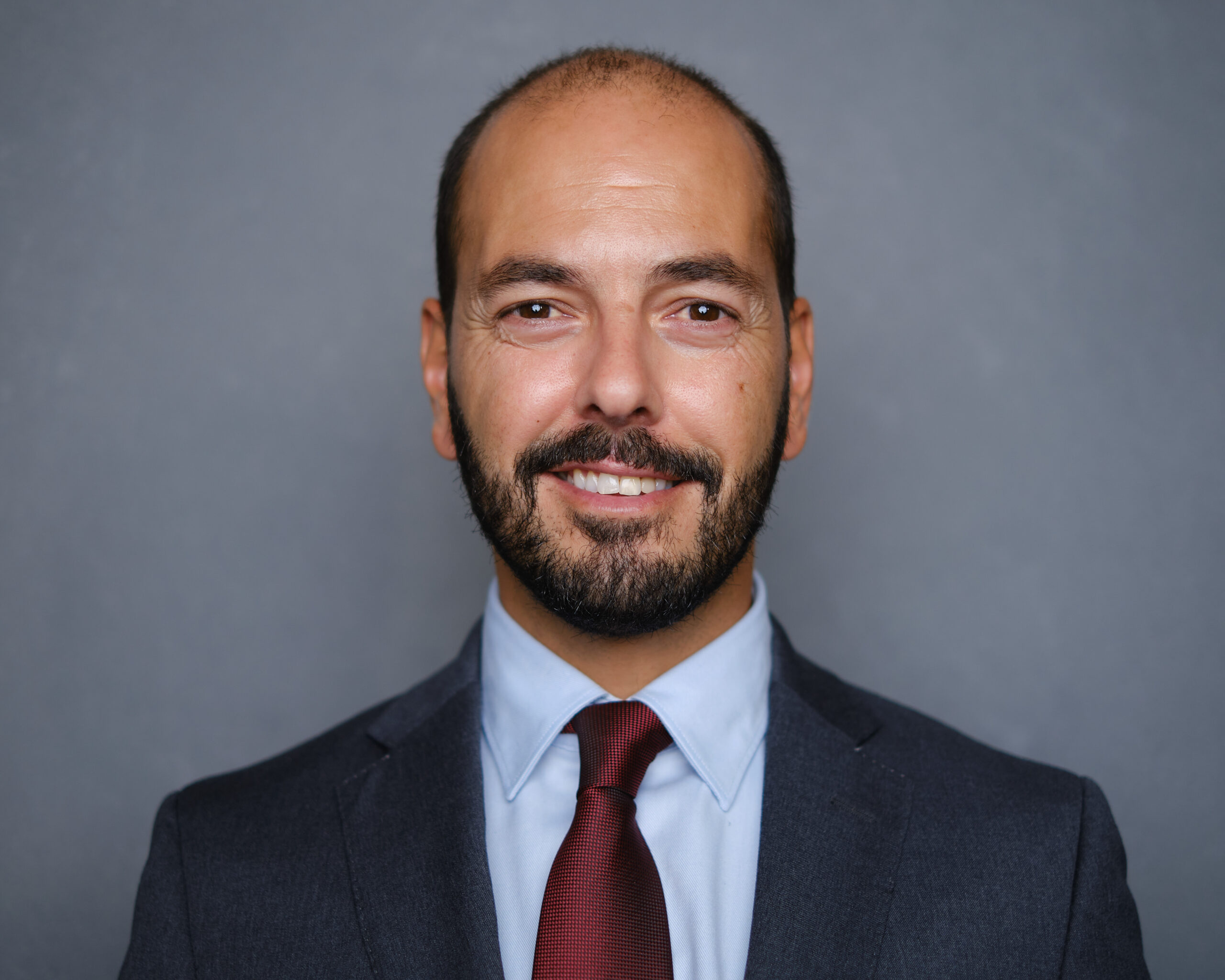VISAS & IMMIGRATION

Portugal’s allure as a top expat destination is undeniable, boasting safety, a sunny climate, lower cost of living, welcoming people, and more. With a near-perfect success rate, SBPS legal is known as the go-to law firm and trusted ally of those wishing to move to Portugal, offering expertise and personalised attention throughout the emotional and complex immigration journey.
SBPS legal’s multidisciplinary team spans across diverse fields such as taxes, corporate, labour, and real estate, enabling it to offer comprehensive support and ensure smooth sailing for individuals and businesses wishing to settle in Portugal, or to the ones already in Portugal with their immigration status still pending.
OUR VISA & IMMIGRATION SERVICES
SBPS legal offers comprehensive legal advice on the following visas and immigration routes:
![]() Golden Visa (Residence Permit for Investment Purposes);
Golden Visa (Residence Permit for Investment Purposes);
![]() Residence (type D) and Temporary Stay (type E) Visas – for non-EU/EFTA nationals, skilled or unskilled workers, holders of passive or active income sourced abroad, entrepreneurs, students, among others, and their family members;
Residence (type D) and Temporary Stay (type E) Visas – for non-EU/EFTA nationals, skilled or unskilled workers, holders of passive or active income sourced abroad, entrepreneurs, students, among others, and their family members;
![]() Temporary and Permanent Residence Permits for non-EU/EFTA nationals, including Blue Cards;
Temporary and Permanent Residence Permits for non-EU/EFTA nationals, including Blue Cards;
![]() Temporary and Permanent Residence Permits for European citizens, including non-EU family members of Portuguese nationals;
Temporary and Permanent Residence Permits for European citizens, including non-EU family members of Portuguese nationals;
![]() Ex gratia and hierarchical appeals challenging Consular’s or AIMA’s decisions;
Ex gratia and hierarchical appeals challenging Consular’s or AIMA’s decisions;
![]() Other administrative litigation, such as Enforcement Actions and Subpoenas for the Protection of Rights, Freedoms and Guarantees;
Other administrative litigation, such as Enforcement Actions and Subpoenas for the Protection of Rights, Freedoms and Guarantees;
![]() Portuguese Citizenship applications.
Portuguese Citizenship applications.
RESIDENCE VISAS (type D)
Residence visas are designed for non-EU nationals intending to stay in Portugal for more than one year. This type of visa grants legal entry into Portugal for the purpose of converting it into a residence permit valid for an initial period of two years, with the option to renew for an additional three years.
Holders of Passive Income (D7)
This visa is aimed at individuals who receive retirement pensions or other forms of passive income, including rents, dividends, interest, and royalties.
Remote Workers (D8)
This visa is intended for employees or self-employed individuals who work remotely for individuals or businesses based outside Portugal, deriving their primary (active) income from abroad.
Highly Qualified Professionals (D3)
This visa is intended for highly qualified professionals, whether they are employed by a company or self-employed, who have entered into a contract (either for employment or the provision of services) with an entity based in Portugal.
Tech Visa (D3)
The Tech Visa is a type of D3 visa is intended for highly qualified professionals (employed by a company or self-employed), who have entered into a contract (either for employment or the provision of services) with an entity certified under the Tech Visa programme and based in Portugal.
Entrepreneurs and Self-employed Professionals (D2)
This type of visa applies to:
1) Entrepreneurs wishing to set up a business in Portugal;
2) Self-employed workers, self-employed professionals, service providers or sole traders who provide services to entities located in Portugal.
StartUP Visa (D2)
The StartUP Visa is a type of D2 visa designed for entrepreneurs who want to set up and incubate a start-up in Portugal.
Family Reunification Visa (D6) and Accompanying Family Member Visa
* Accompanying Family Member Visa – applies to household members of applicants for residence visas who intend to live with them in Portugal.
* Family Reunification – applies to household members of residence permit holders who intend to live with them in Portugal.
Eligible family members are:
* The spouse or common-law partner;
* Children under the age of 18 or incapacitated (natural or adopted), dependent on the couple or on one of the spouses/partners;
* Unmarried children (natural or adopted) over the age of 18, dependent on the couple or on one of the spouses/partners, enroled in school or university in Portugal;
* First-degree relatives in the ascending line of the resident or spouse/partner (parents and in-laws) over the age of 65, or under the age of 65 if they are financially dependent on them;
* Minor siblings, provided they are under the guardianship of the applicant, based on a ruling issued by the competent authority of the country of origin and duly recognised in Portugal.
TEMPORARY STAY VISAS (type E)
Temporary stay visas entitle non-EU nationals to enter and stay in Portugal for periods of less than one year and allows for multiple entries. The specific type is related to the reason for applying for the visa (e.g. medical treatment).
- Remote Workers and Digital Nomads (ER)
This visa is intended for employees or self-employed individuals who work remotely for individuals or businesses based outside Portugal, deriving their primary (active) income from abroad.
- Highly Qualified Workers (E4)
This visa is intended for highly qualified professionals, whether they are employed by a company or self-employed, who have entered into a contract (either for employment or the provision of services) with an entity based in Portugal.
- Higher Education Students and Researchers (E4)
This visa is directed at students enrolled in higher education in Portugal or at researchers involved in scientific projects in Portugal.
- Accompanying Family Members (EF)
This visa is intended for close family members of applicants for a temporary stay visa who wish to accompany them during their stay in Portugal.
Eligible family members are:
- The spouse or common-law partner;
- Children under the age of 18 or incapacitated (natural or adopted), dependent on the couple or on one of the spouses/partners;
- Unmarried children (natural or adopted) over the age of 18, dependent on the couple or on one of the spouses/partners, enrolled in school or university in Portugal;
- First-degree relatives in the ascending line of the resident or spouse/partner (parents and in-laws) over the age of 65, or under the age of 65 if they are financially dependent on them;
- Minor siblings, provided they are under the guardianship of the applicant, based on a ruling issued by the competent authority of the country of origin and duly recognised in Portugal.
TEMPORARY RESIDENCE PERMITS
For non-EU/EFTA nationals staying in Portugal longer than 90 days requires either a visa or a residence permit.
Residence permits can be temporary or permanent: temporary residency permits are issued for two years and renewable for three more whereas permanent residency permits can only be applied for after holding a temporary permit for five years.
GOLDEN VISA (Residence Permit for Investment Purposes)
The Golden Visa is a type of Residence Permit granted to non-EU/EFTA nationals who make a minimum investment in Portugal as framed in the Aliens Act.
Golden Visa holders receive a Temporary Residence Permit valid for two years and renewable every two years. However, after five years, Golden Visa holders can apply for Portuguese Citizenship or, alternatively, for a Permanent Residence Permit in Portugal, provided they meet the remaining requirements.
Despite the recent exclusion of the real estate options, the Golden Visa programme still foresees five investment routes.
- Capital transfer in the amount of € 500,000 or more for the acquisition of units in non-real estate Investment Funds, incorporated under Portuguese law (with at least 60% invested in companies based in Portugal), maturity at the time of the investment being at least five years.
- Capital transfer (donation) with a value equal to or above € 250,000 for investing in artistic output or for supporting the Arts or for preserving national heritage in Portugal (pre-approval of the project is required before the application), which can be reduced by 20% in low-density areas.
- Capital transfer in the amount of € 500,000 or more:
- into the share capital of a newly incorporated company with registered offices in Portugal, combined with the creation of five permanent jobs; or
- for the reinforcement of the share capital of an existing company with registered offices in Portugal, together with the creation of at least five permanent jobs or the maintenance of at least ten jobs, with a minimum of five permanent ones kept for a minimum period of three years.
- Creation of, at least, 10 jobs by a company owned by the Investor, which can be reduced by 20% in low-density areas.
- Capital transfer (donation) with a value equal to or above € 500,000 for investing in research and development activities carried out by public or private scientific research institutions, integrated (accredited) into the national scientific and technological system, which can be reduced by 20% in low-density areas.
Families can apply together and be granted residence permits under the same conditions. Eligible family members are:
- The spouse or common-law partner;
- Children under the age of 18 or incapacitated (natural or adopted), dependent on the couple or on one of the spouses/partners;
- Single children (natural or adopted) over the age of 18, dependent on the couple or on one of the spouses/partners, enroled in school or university, in Portugal or abroad;
- First-degree relatives in the ascending line of the resident or spouse/partner (parents and in-laws) over the age of 65, or under the age of 65 if they are financially dependent on them;
- Minor siblings, provided they are under the guardianship of the applicant, based on a ruling issued by the competent authority of the country of origin and duly recognised in Portugal.
Parents of minors living in Portugal
This type of residence permit is intended for the parents of underage Portuguese citizens or third-country nationals already holding a residence permit, and who wish to live with them in Portugal.
European Union Citizen Registration Certificate (CRUE)
The European Union Citizen Registration Certificate (CRUE) is meant for European citizens (EU, EEA, Andorra and Switzerland nationals) who intend to stay in Portugal for a period of more than three consecutive months.
CRUE holders can apply for family reunification for third-country family members. Eligible family members are:
- The spouse or common-law partner;
- Children under the age of 21 or incapacitated (natural or adopted) dependent on the couple or on one of the spouses/partners;
- Single children (natural or adopted) over the age of 21, dependent on the couple or on one of the spouses/partners, enroled in school or university in Portugal;
- First-degree relatives in the ascending line of the resident or spouse/partner (parents and in-laws) over the age of 65, or under the age of 65 if they are financially dependent on them.
PERMANENT RESIDENCE PERMITS
Individuals who have maintained a temporary residence permit for at least five years and wish to continue living in Portugal can apply for permanent residency, provided they meet all other required criteria.
- Third-country nationals
Applies to holders of a temporary residence permit for at least five consecutive years who wish to continue residing in Portugal. The permanent residence permit does not expire, but the residence card will be issued for five years and renewable for equal periods.
- Europeans
Applies to holders of a CRUE (European Union Citizen Registration Certificate) for at least five consecutive years who wish to continue residing in Portugal. The permanent residence permit does not expire, but the residence card will be issued for ten years and renewable for equal periods.
News & Insights ...
Considering PLAN B? The Portuguese Golden Visa program is it!
Portugal, where English is widely spoken, boasts safety, sunny weather, quality of life, friendly locals, tasty food, fantastic fibre internet coverage and direct flights to several US cities and several other destinations in Europe, America and Africa. If you are not...
Minors travelling out of Portugal
Article 44 of the Portuguese Constitution enshrines the right to move and emigrate: ‘1. All citizens are guaranteed the right to move and settle freely in any part of the national territory.2. Everyone is guaranteed the right to emigrate or leave national territory...
Knowledge of the Portuguese Language for Applying for Portuguese Citizenship
Language is an essential tool for ensuring that citizens can communicate and integrate fully into Portuguese society. Therefore, for various types of nationality processes, one of the fundamental requirements is to demonstrate a basic level of proficiency in the...
Meet The Team

Vasco Seabra Barreira
Labor Law / Public Law / Real Estate

João Pinto Gonçalves
Immigration / Real Estate / Litigation

João Soares Oliveira
Corporate Law / Litigation / Real Estate

Our Office
News & Insights
Relocating to Portugal: D7 or D8 visa - which is best?
Has the NHR tax regime come to an end?
Know Your Rights: Understanding Security Deposits in Lease Agreements
How to Legalize Documents for International Use
Moving your business to Portugal: main types of companies
What is a living will?



